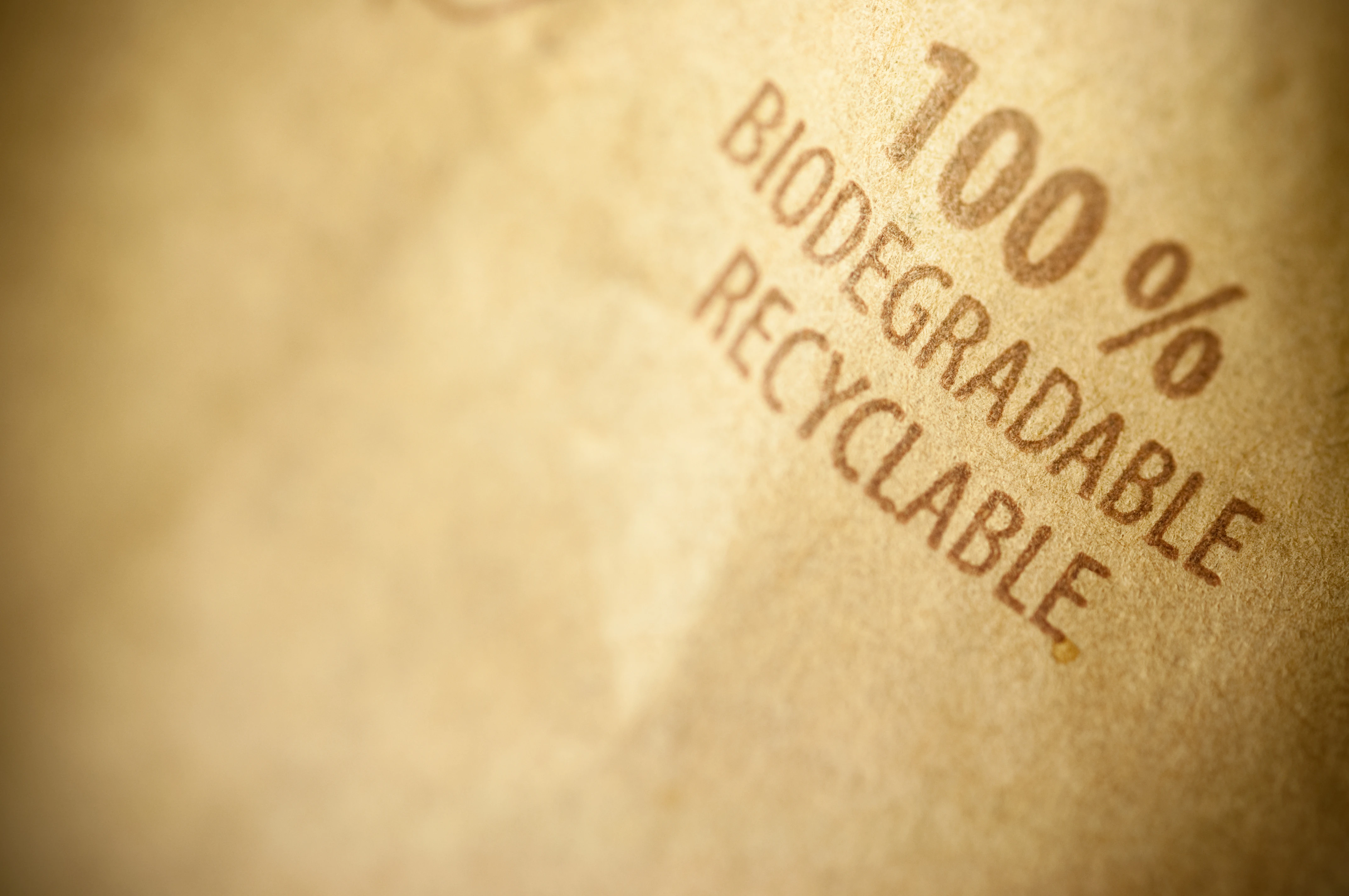
Olivier Le Moal | stock.adobe.com
A life cycle analysis of the bioplastic polylactic acid (PLA) undertaken by Eunomia Research & Consulting has identified a disappointing recycling track record as one of several environmental and social impacts that are challenging prevailing perceptions of the material’s sustainability.
Eunomia collaborated with the Washington-based Plastic Pollution Coalition (PPC) to create the 18-page report on PLA. The report, “Bioplastics Are Trash: The Unforeseen Environmental Consequences of PLA from Production to Disposal,” was prepared by the New York office of United Kingdom-based Eunomia.
PLA and other bioplastics have been met with a critical eye by material recovery facility (MRF) operators and plastics reprocessors because they are not considered compatible with most established mechanical recycling processes.
Thus, recyclers of the most commonly recycled postconsumer plastics, such as polyethylene terephthalate (PET), high-density polyethylene (HDPE) and polypropylene (PP), treat PLA in the mixed container stream as a contaminant.
“If PLA is not sorted and removed from conventional plastic recycling streams, it acts as a contaminant and will have a detrimental impact on the final product in terms of strength and color," Eunomia says.
Proponents of the bioplastic have recommended composting discarded PLA, but the Eunomia report identifies shortcomings in that process, too.
“PLA does not biodegrade at the same speed as other organic materials in composting facilities, which can lead to contamination of the final compost product” at most existing composting locations," Eunomia says.
“For bioplastics like PLA to decompose and biodegrade, they must be collected and composted in one of the limited number of carefully controlled, high-temperature industrial composting facilities in the United States that accept them. These facilities are few and far between."
The use of plant oils in place of petroleum has been the leading sustainability tie-in for PLA and other bioresins, but Eunomia and the PCC claim the start of the life cycle for PLA also involves environmental tradeoffs.
“Bioplastics like PLA are developed from feedstocks that require intensive agricultural practices, which contribute to ecological issues such as deforestation, water pollution, soil degradation and loss of biodiversity,” the groups say.
In the U.S., fermented corn starch is a common bioplastic feedstock, while in Asia, sugar cane is more commonly used.
According to Eunomia, in 2022 about 3 million tons of bioplastic were produced, with PLA comprising 21 percent of that total.
“Our research shows that PLA is not the panacea for the planet’s plastic problems,” says Sarah Edwards, head of North America for Eunomia. “[While] PLA is derived from renewable resources, so the need for fossil fuel feedstocks is negated, its production and end-of-life disposal pose environmental issues [that] should not be overlooked.”
“Reducing single-use plastics and prioritizing infinitely reusable and recyclable materials is crucial for protecting human health, especially for people who live in vulnerable communities that are disproportionately impacted by our current single-use culture,” PPC Managing Director Julia Cohen adds.
The groups point to materials like aluminum "that offer endless recyclability” as an alternative offering a better life cycle profile, and while the PCC is unlikely to endorse PET as an alternative, its recycling volumes have been rising globally.
“While PLA seems to offer a promising alternative to conventional plastics with potential environmental benefits, the sustainability of PLA is conditional on the development of appropriate policies and regulations to minimize or eliminate unintended and negative production consequences, alongside comprehensive waste management strategies and large-scale infrastructure investments,” the report concludes.
Latest from Recycling Today
- BMW Group, Encory launch 'direct recycling’ of batteries
- Loom Carbon, RTI International partner to scale textile recycling technology
- Goodwill Industries of West Michigan, American Glass Mosaics partner to divert glass from landfill
- CARI forms federal advocacy partnership
- Monthly packaging papers shipments down in November
- STEEL Act aims to enhance trade enforcement to prevent dumping of steel in the US
- San Francisco schools introduce compostable lunch trays
- Aduro graduates from Shell GameChanger program





